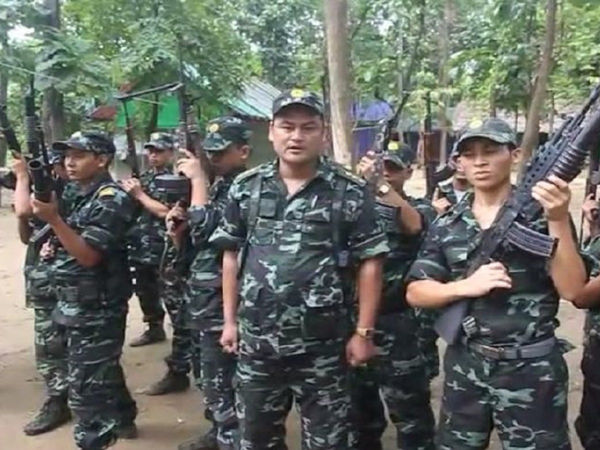
Govt to sign accord with dreaded Bodo militant group NDFB on Jan 27
The Centre is all set to sign an accord with the banned Assam-based insurgent group National Democratic Front of Boroland providing political and economic bonanza to the tribals, sans the outfit’s key demand of a separate Bodoland state or union territory.

The Centre is all set to sign an accord with the banned Assam-based insurgent group National Democratic Front of Boroland (NDFB) on Monday (January 27) providing political and economic bonanza to the tribals, sans the outfit’s key demand of a separate Bodoland state or union territory.
The tripartite agreement will be signed in the presence of Union Home Minister Amit Shah and Assam Chief Minister Sarbananda Sonowal by the top leadership of the four factions of the NDFB, Joint Secretary in the Home Ministry Satyendra Garg and Assam Chief Secretary Kumar Sanjay Krishna.
“The accord will provide for some political rights to the Bodo tribals living in Assam and some economic package for the community,” a senior official privy to the development said.
However, the official made it clear that the territorial integrity of Assam will be maintained and the key demand of the NDFB, which is either a separate state or a UT, is not going to be entertained.
“The accord will be within the framework of the Constitution without splitting the state,” another official said.
The Home minister is very keen to conclude the accord as early as possible to end the protected Bodo insurgency in Assam so that a lasting peace is returned to the Bodo-dominated areas in the state, the official said.
The four factions of the NDFB, which will sign the pact, are led by Ranjan Daimari, Govinda Basumatary, Dhiren Boro and B Saoraigra.
Saoraigra took over the NDFB faction in 2015, removing its chief, I K Songbijit, who had allegedly ordered the killing of nearly 70 adivasis in December 2014.
The NDFB-Saoraigra faction had returned from their base in Myanmar about a fortnight ago and signed an agreement with the government for the suspension of operations.
Daimari was released from a jail in Assam two days ago, facilitating his participation in signing of the accord.
The NDFB continues to be a banned outfit.
Some NDFB militants were part of the 644 militants who surrendered in Guwahati on Thursday before Chief Minister Sonowal.
In the accord, the government is likely to ensure safeguard of Bodo language and culture and related matters. A commission is also likely to be set up to take views of a cross section of the people in Assam in providing some specific political rights to the Bodos. Promise to set up a sports university and job-oriented higher education institutions are also expected to be part of the pact.
However, it is immediately not clear whether the status of the existing Bodoland Territorial Council (BTC) will be enhanced.
It will be the third Bodo accord to be signed in last 27 years when the violent movement for a separate Bodoland state claimed hundreds of lives, destruction of public and private properties.
The first Bodo accord was signed with the All Bodo Students Union (ABSU) in 1993, leading to creation of a Bodoland Autonomous Council with limited political powers.
In 2003, the second Bodo accord was signed with the militant group Bodo Liberation Tigers (BLT), leading to formation of a Bodoland Territorial Council (BTC) with four districts of Assam — Kokrajhar, Chirang, Baska and Udalguri — called the Bodoland Territorial Area District (BTAD).
The BTC has control over 30 subjects like education, forests, horticulture but no jurisdiction on the police, revenue and general administration departments, which are controlled by the Assam government.
The BTC was formed under the 6th Schedule of the Constitution.
The demand for a separate state for the Bodos has been going on in Assam for about five decades and several Bodo over ground and militant groups raising it leading to agitations, protests, violence and many deaths.

